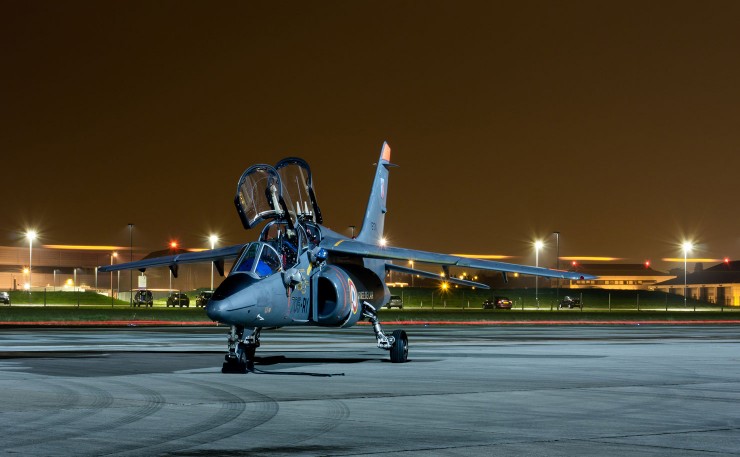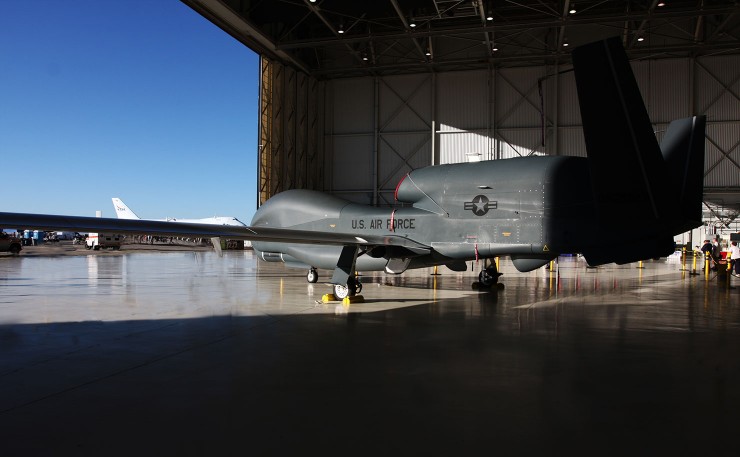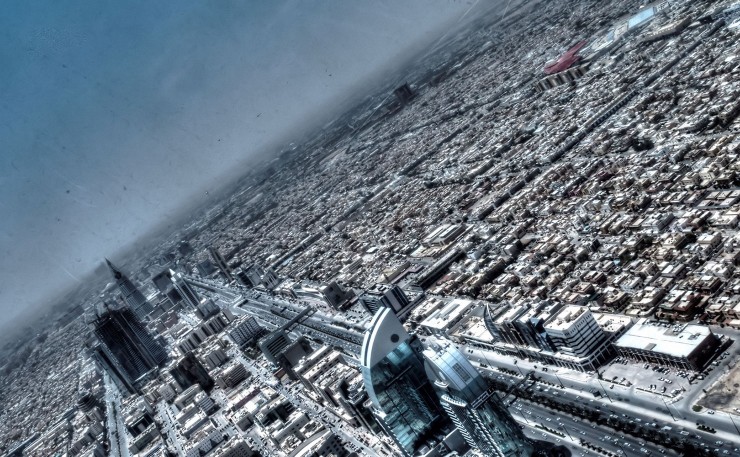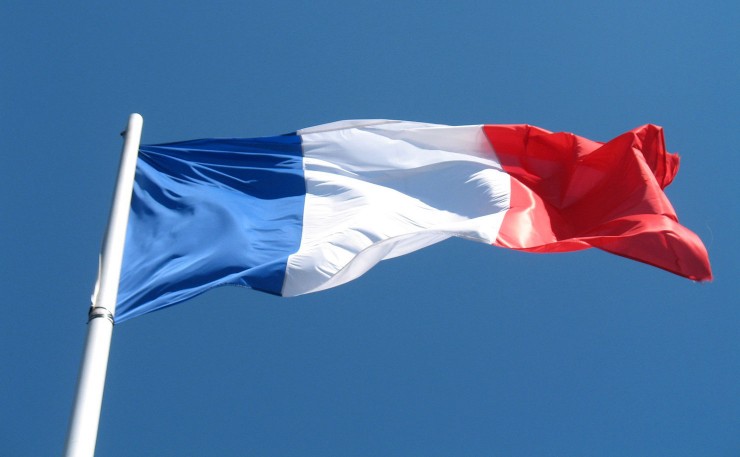The citizens of France are the ones paying the price for the aggression of their nation, writes Sam Oldham.
Thirty years ago, former head of Israeli military intelligence, Yehoshaphat Harkabi, coined an important adage in the history of military occupations: ‘remove the swamp, and there will be no more mosquitoes’.
Israel’s brutal occupation of Palestine, which Harkabi opposed, was the swamp; Palestinian terrorists attacking Israel were Harkabi’s mosquitoes.
Today, the West is plagued by ‘mosquitoes’ as a result of its violence in Muslim countries. It is no secret that ISIS is a consequence of the US-led invasion of Iraq, a fact that is increasingly recognised within establishment circles.
Former CIA officer Graham Fuller last year conceded that Western aggression in Iraq was directly responsible for the conditions that have given rise to ISIS. Pervasive among these conditions is bitter hatred for America and its allies.
While France was not an ally in 2003, it has been aggressive in its bombing of Iraq and Syria in the past year.
These attacks do more than just antagonise the monsters of ISIS; hundreds of civilians have been killed, pushing frustrated and terrified people into the arms of extremist groups.
The Western air war has been prosecuted at a level that is underreported in the international press. According to US Air Force sources, coalition aircraft released 22,863 weapons in the year to August 2015. A report from the British group Airwars.org, which investigates and evaluates claims of civilian casualties, documents between 459 and 591 civilian deaths as a result of coalition airstrikes in Iraq and Syria so far.

(IMAGE: Darren Flinders, Flickr)
In one incident, an airstrike in Al Bab, Syria, killed up to 58 non-combatants, including women and children.
In the absence of independent journalism and government transparency, large numbers of civilian casualties no doubt go unreported. Incidentally, the chair of Airwars.org describes Australia as ‘way down the bottom of the transparency table’, bombing unaccountably, with consequences that are perhaps yet to be known.
Western governments have taken a slightly more critical interest in the impact of Russian airstrikes on Syrian civilians in recent weeks, with the UK Defence Secretary condemning the possibility that Russia has killed thousands of innocent people. There is no reason to believe that Russian air strikes are any less accurate than those of France and others.
Claims that the Syrian people support Western bombing of their country are largely unfounded. In fact, what limited independent polling can be conducted in Syria suggests that, while respondents have differing views regarding support for Assad and the opposition, respondents are almost unanimous in their opposition to foreign airstrikes.
Furthermore, while the crimes of ISIS offer a compelling pretext, there is still no UN sanction for foreign airstrikes in Iraq and Syria. It was the West’s disregard for international law that enabled the 2003 invasion of Iraq, from which almost all contemporary problems stem.
Western force continues to stir up radicalism and violence elsewhere. ISIS is growing in Afghanistan, where last month US forces bombed a hospital, killing doctors and patients, including children.
ISIS has had success in recruiting along the Afghan-Pakistan border, even converting (or beheading) former Taliban militants.
Regional experts are relatively clear about the basis for Islamic terrorism in this area: Obama’s drone war, supported by both France and Australia.
The New York Times cites Pakistani sources that put the casualty ratio from drone strikes at around 50 civilians for every terrorist killed, and draws reasonable conclusions: “Every one of these dead non-combatants represents an alienated family, a new desire for revenge, and more recruits for a militant movement that has grown exponentially even as drone strikes have increased.”
Many Pakistani government officials consider the campaign “to be counter-productive and to be radicalising a whole new generation, and thereby perpetuating the problem of terrorism in the region.”
Western drone strikes are not limited to Pakistan. A Yemeni writer and activist, Ibrahim Mothana, has written extensively on drone strikes in Yemen, where a brutal Western-backed regime is fighting an Islamic insurgency.
“Drone strikes are causing more and more Yemenis to hate America and join radical militants. They are not driven by ideology but rather by a sense of revenge and despair.”

In the wake of the Paris attacks, chilling video has emerged of ISIS members vowing to attack the city in 2014. In August, Al Qaeda in Yemen made similar threats against the United States.
France has offered intelligence and logistical support to Obama’s drone war. Last year, a resolution went before the United Nations urging that all states using drones should ensure they are complying “with their obligations under international law, including the Charter of the United Nations, international human rights law and international humanitarian law.”
Three governments voted against the resolution: the US, the UK, and France.
But French force has been projected well-beyond the Middle East. In 2013, the motives behind French military intervention in Mali were questioned, even by relatively conservative sources, given the massive strategic resources of the African nation, what GlobalResearch described as an ‘El Dorado’ of uranium, gold, petroleum, and strategic minerals.
The intervention resulted in a surge of threats against Paris by Al Qaeda in Central Africa, as well as renewed violence against Algerians, whose government cooperated in the French operation.
ISIS now has important allegiances in Mali.
Jakkie Cilliers, of the Institute for Security Studies, noted at a conference in South Africa last month that “deliberate or not, the main drivers of international terrorism today is the policies and actions of the United States and its Western allies”.
The major sources terrorism and instability in Africa — Somalia and Libya — have been targets of Western intervention. The West is deeply complicit in the development of Somali terror, backing an Ethiopian invasion of the country in 2006, a valuable recruiting tool for al-Shabaab.
France of course played a leading role in the war against Libya in 2011, plunging the country into chaos. Islamic fundamentalism has spread dramatically in Libya since the overthrow of Gaddafi.
ISIS has gained a significant foothold; as this article is written, the head of Islamic State in Libya was killed in a drone strike. Amid the mayhem, Western oil companies are prospering. Chief among them is the French group Total, which invested US$130 million in 2013 in gas exploration in Libya in 2013.
French elites continue to support the most brutal regimes in the Middle East, including major sources of radical Islam.
Only last month, France secured 10 billion Euros in investments in Saudi Arabia, making it the third largest investor in the country.
Saudi Arabia is the home of radical Islamist ideology around the world. In fact, the radical Wahhabism of ISIS has its origins in the Saudi autocracy.
The brutality of the House of Saud, awash in oil money and Western impunity, is consistently ignored by Western states. Recently, it was on track to set a global record for beheadings, obviously a matter of little concern to French diplomats and their corporate beneficiaries.

As more terrorist attacks occur in the West, moderate Muslims are increasingly trapped between rising extremism on one side and Islamophobia on the other.
Islamophobia is institutionalised in France; the French government was the first to impose bans on the burqa, while an astonishing 70 percent of French prisoners are Muslim.
The French penal system has in recent years grappled with the challenge of Islamic radicalisation proliferating in its prisons.
Islamophobia is entrenched socially also, spurred by conservative media pundits and government policy. In less than a week following the Charlie Hebdo attack, the National Observatory against Islamophobia reported 50-60 Islamophobic attacks, including firebombing of mosques and savage assaults on ordinary people.
These pressures generate only greater alienation and hatred among Muslims living in the West, many of whom have fled the brutal consequences of Western intervention in their home countries.
The people of Paris did nothing to deserve the horrors that were unleashed on Friday the 13th, but their elites continue to stir up terror and radicalism through their criminal policies.
Hollande’s rhetoric of ‘acts of war’ and an impending ‘merciless’ response to the attacks only portends to further carnage.
If people are concerned to stop terrorism, they should look first to the role of their own governments in promoting it.
Far from a new observation, it is one worth reiterating in dark times.
Donate To New Matilda
New Matilda is a small, independent media outlet. We survive through reader contributions, and never losing a lawsuit. If you got something from this article, giving something back helps us to continue speaking truth to power. Every little bit counts.





